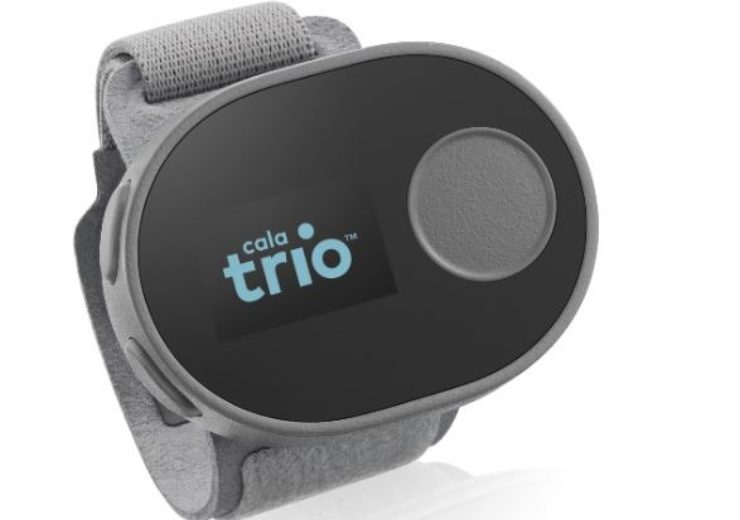PROSPECT is a prospective, single-arm study designed to evaluate the symptomatic relief from hand tremor in ET with repeated use of Cala Therapy

PROSPECT is the largest clinical trial ever conducted for ET (Credit: Cala Health)
US-based bioelectronic medicine company Cala Health has released positive results from its PROspective study for SymPtomatic relief of Essential tremor with Cala Therapy (PROSPECT) clinical study.
Cala Therapy, marketed as Cala Trio, is a wrist-worn neuromodulation therapy and marks the only non-invasive individualised therapy for essential tremor (ET).
Cala Health founder and chief scientific officer Kate Rosenbluth said: “We are thrilled with the results of the PROSPECT trial. It is tremendously exciting to see the relief our non-invasive neuromodulation therapy brings to patients with ET, without surgery or drugs. We are deeply grateful to the patients and investigators who participated in this study.”
PROSPECT is the largest clinical trial ever conducted for ET
ET is one of the most common neurological disorders and marks the most prevalent tremor disorder. It is a chronic disease that causes involuntary and rhythmic shaking, that affects any part of the body, but the trembling is predominantly observed in the hands.
The company said that PROSPECT is a prospective, single-arm study designed to evaluate the symptomatic relief from hand tremor in ET with repeated use of Cala Therapy.
The study has enrolled 263 patients with an average duration of ET symptoms lasting over 25 years and was carried out in 26 centres.
In the study, patients were instructed to use the device for 40-minute sessions twice daily for three months, where the device was calibrated to each patient’s tremor frequency and delivered patterned electrical stimulation to nerves through the skin.
Cala said that its PROSPECT study has reached the co-primary and secondary endpoints, recording statistically significant improvements in symptomatic relief of ET in the treated hand at three months compared to baseline.
The study results showed that 62% of patients improved in tremor severity from severe/moderate to mild/slight according to The Essential Tremor Rating Assessment Scale (TETRAS), and 68% of patients improved in tremor severity from severe/moderate to mild according to Activities of Daily Living (ADLs).
The analysis of motion sensor data from Cala Therapy showed that 54% of patients experienced greater than 50% improvement in tremor power for the three-month study.
From collection and analysis of more than 21,000 stimulation sessions, clinical and patient impression of improvement showed that 68% of clinicians and 60% of patients rated improvement at three months.
